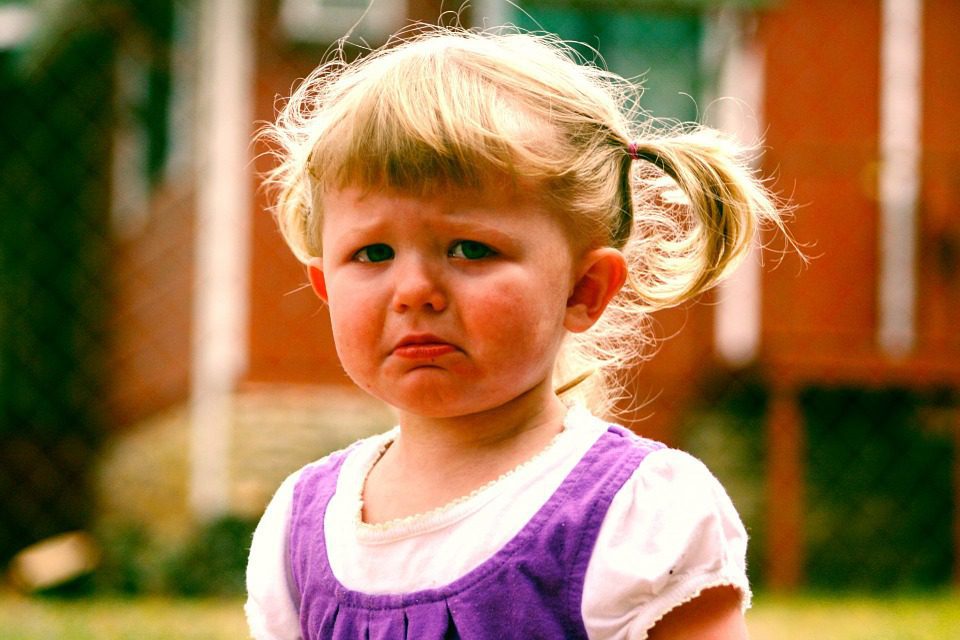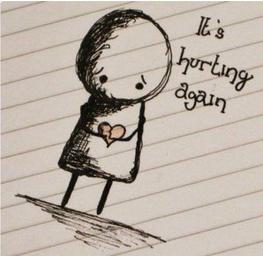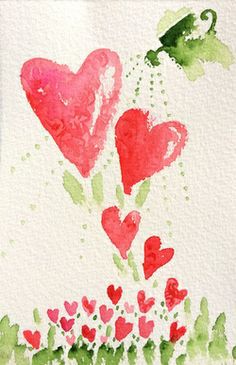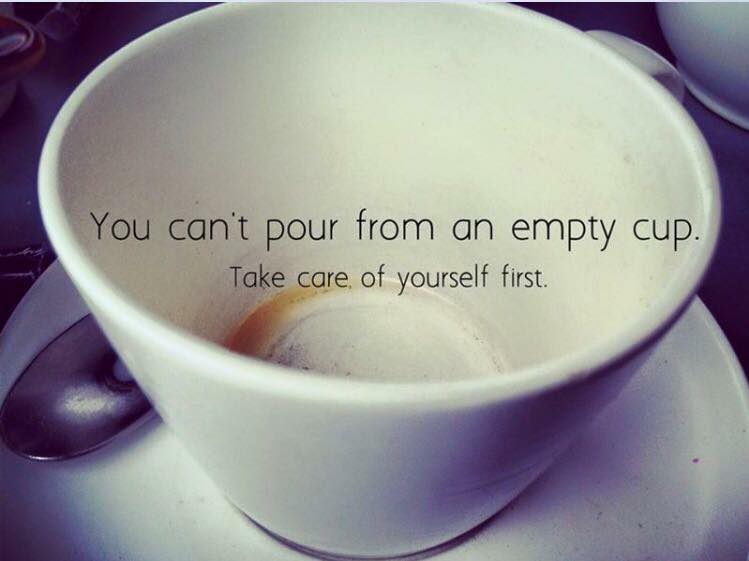There are many impacts of abuse on children. If the child does not receive assistance to break free from these impacts they often carry over into adulthood.
Loss of childhood – abused children lose their sense of innocence, their sense that the world is a safe place. A sense of mistrust that persists develops with the abused child often expecting people to abuse them. They, therefore, do not let people close and often go inside themself, close down and withdraw. They begin to parent themself and protect themself as best they can. They may even try to parent their parents to gain a sense of safety. They cannot relax and enjoy their childhood. They may act inappropriately sexually or become withdrawn, confused and silent. They may become less intelligent than they were or more bookish if they find some safety and security in being alone.
Repetition of abuse – abused children have acutely low self-esteem. They feel there must be something wrong with them because of what happened. This low self-confidence makes meeting people and relationships difficult. It leads to difficulty in creating appropriate boundaries and recognizing their own needs. Abused children often accept more abuse as they grow, as they do not know any different and they may feel that it’s their fault somehow. They can’t easily identify the kind of person or behaviour that is harmful to them; only that something doesn’t feel good. They become more likely to be bullied in school and abused in adult relationships. A sexually abused child is 4 times more likely to be sexually abused again than a non-abused child. Castine (1989) points out that 50% of the time daughters of alcoholic fathers marry alcoholics while Jorgensen and Jorgensen (1990) report that one out of every four children of alcoholics develop alcoholism themselves.
Blaming ourselves – children can’t bear to believe that those who are supposed to love them and care for them can be wrong, so they take responsibility for the abuse themself. Blaming themself gives them a sense of control. It’s easier to live with the guilt of themself having caused it than to accept that their caretakers could be so terrible. Abused children believe that they are bad. Some may try to hide their feelings of weakness by acting strong, while others will be cowardly and subservient. They live their lives afraid of being confronted at any time with their badness. This sense of badness may not be conscious; it may be suppressed however it affects all parts of a person’s life (this is what gets changed through therapy).
Emotional rigidity – the abused child carries their hurt and their damaged inner child with them as they grow. The emotional damage affects their development. They tend to become rigid, stuck in particular feelings, thinking or a particular way of looking at the world. They often can’t feel all emotions or express them and maybe stuck in feelings such as happy or loving or angry or fear or complaining. Being stuck is a defence mechanism protecting them from feeling the other emotions that they see as threatening or that may result in re-experiencing an aspect of some earlier abuse. An adult who was abused as a child is often unable to be spontaneous. They do not see their rigidity but are aware of a vague dissatisfaction with their life. They tend to see both people and situations as either positive or negative, good or bad, there is no middle ground. They may blame others unnecessarily and direct their bad feelings and suppressed anger at them.
Isolation – starts from a young age as abusive families often try to hide their dysfunction from others, siblings don’t talk about it and they compete for the attention of the parents. They may abuse each other as they try to cope with what has happened to them. They don’t bring friends home from school or venture out into the world for fear of someone discovering their secret. If an abused person feels they can’t deal with the emotions they’ve buried inside such as sadness, anger, and shame, they will often continue to isolate themselves as adults. They feel separate from others. They do not have a sense of a way out of their position and may overreact to any situation which touches on a felt memory or when people seem like their abuser, or where the feeling is the same as when the abuse happened to them. They may act as if in danger and push people away even though they’re not in danger.
Control – Often abused children as adults feel a need for a strong sense of control. This is so that awkward, painful and difficult to handle emotions/feelings can be kept at bay. Giving up control means facing the pain, which they may feel is overwhelming and therefore must be denied. The need for control can show up in rigid demands that partners, children and others also hide their feelings and control their emotions carefully. It may show up in compulsive behaviour like obsessive cleanliness and tidiness, excessive fussiness, or a need to get things right at any cost whether at work or at home. This anxiousness or desperation can be sensed by others and often makes them feel uneasy around the abused person.
Dependence and insecurity – abused children and adults often have an external locus of evaluation. They judge themself on whether or not others love and accept them or on the size of their career success and assets. These people, who feel a need for someone else to nurture them, to tell them they’re okay, are often taken advantage of by others who see their desperate need and know they can do whatever they want to them and the abused person will put up with it, they won’t leave.
Ambivalence – abused children as adults are often ambivalent to what occurs to them. They learnt to be ambivalent while being abused. They didn’t want to dob in their parents as they wanted their love, feared their loss and the consequences of telling the truth. If the parent only abused them occasionally, they may have seen it as an occasional error to be put up with. They may have pretended that they liked the abuse or told themself that not making a fuss is better or that they might not be believed even if they did say something. Hence they learnt to accept it and just get on with life. They are ambivalent about the effect of this on the rest of their lives. They may never relax and feel safe with those they love. They may never allow themself to be emotionally supported for fear of the loved one becoming an abuser. They may believe that anything good can contain bad and vice versa. The result is apathy, not knowing what to choose or where to turn.
Identifying with the abuser – identifying with the abuser can make an abused child feel strong rather than a weak victim. They will therefore act strong using anger as their dominant emotion, blaming others for things. This is a defence against their underlying feeling of danger and the fear that they may be abused again. If they were sexually abused they may be sexual with other kids. This can be an angry gesture: it happened to me now you; it may be a confusing way of trying to share the experience, trying to make sense of the pain and humiliation; or they may have felt the abuse was pleasurable and want to do it again; they may want their child friend to feel what they felt. Many kids who are abused are also cruel to or abuse siblings, kids, pets or wild animals. They may feel ashamed or guilty of this and beat themselves up. It’s really important to always remember it is not the child’s fault. They learnt what they lived, they know no different, be compassionate, do not abuse them further.
Abusing our bodies – abused children as adults often have a high level of self-contempt and self-loathing. They abuse their body by over or under eating; alcohol or drug abuse; physical abuse or ignoring their body’s needs. They may scar themself in an attempt to make themself less attractive to others or to punish themself.
Splitting and multiple personalities – if a child can not cope with what happened to them they may go inside themselves, go somewhere else. People often report leaving their body and looking down upon the scene when being abused/watching from outside themselves. Everyone has sub-personalities, parts of themselves that are happy, sad, achievers, doers, relaxed, etc, but they are all a part of the one person – they make up me. Some people after extended abuse, however, can form almost whole or partial separate personalities. Their sense of ‘I’ is not always the same, the different personalities take control. They never know when they wake up who’s going to be there. This interrupts their memory as each personality has their own preference, skills and memories. The different personalities may or may not communicate and the person can feel horrible, trapped, unable to control them.
Continuing family abuse – when abused kids grow up they often repeat the pattern with their own children. They frequently fail to connect with their children emotionally and do not know how to behave appropriately so the cycle of abuse continues They may feel horrible about what is occurring but do not know how to break free from it.
The impacts of abuse often go wider than just affecting the individual who was abused. There are also impacts on siblings who were not abused and on their partners, children and those they interact with within their adult life. The following information is offered for non-abused siblings. Recognise that it is normal for you to have felt glad not to be abused, but guilty that you weren’t and your brother or sister was or you may have been jealous of the attention they got and sought it out too – being afraid and eager at the same time. You may feel that you should have protected the abused sibling or at least protested. You may have tried to be perfect to avoid abuse and pointed out how much better you were than the other child as a way of trying to protect yourself. Remember you were a child. You coped the best you could. Don’t avoid the abused sibling now because of your guilt. They’ll probably value your friendship and you can both seek assistance in sorting through your issues and developing a closeness.
Partners of adults who were abused as kids may face all sorts of feelings. They may want to rescue their partner, trying to help them heal and protect them from hurt. This can be problematic as relationships always have some tense moments and both partners need to be able to express their feelings and get their needs met – don’t be silent about your needs as this will only cause problems down the track. The abused child as an adult may occasionally behave poorly trying to get the partner to treat them like their abuser did, provoking them. They are trying to feel familiar, comfortable as they are not used to always receiving love. They’re testing you to see if you really do love them and will accept them. If this pattern occurs talk about it, don’t abuse them.
Partners may feel a lot of confusion about what to do, how to handle it, they may get impatient or tired of their mate always being affected by the past and wish they would get over it. They may then feel guilty or ashamed of themselves for thinking this. Don’t bash yourself up over it. It’s normal for you to feel these things. Talk to your partner about your concerns or seek help or if your partner is open to it you can both seek help together. Accept your feelings of helplessness, your pain at seeing their hurt and your anger at their parents. It’s normal. It’s also normal for you to dislike interacting with his or her parents and not saying anything. However, if this is what your abused partner wants then you need to respect their wishes. But look after yourself and vent your anger and frustration healthily when you leave from visiting their parents. You need to get out any negativity, sadness, anger, etc that you have inside about the situations. When you do this you’ll feel better, more in control and react less to what is occurring. You will be able to change the dynamics of how you interact with your partner.
Learn to own your feelings and behaviour and express yourself effectively with no blaming, no judgment, or criticisms. Learn to use I statements – when you do X, I feel Y and I’d prefer it if you could do Z. If you can do this, creating a safe space for them, with love and encouragement it creates the conditions required for your partner to consider facing their own issues. They have to be ready to change. If they’re not keep working on yourself so things don’t upset you so much and you can enjoy your life fully. This is the best thing you can do for both of you. When your partner does become ready to take action you’ll be able to show them what to do or point them to where they can get help. Remember that what we focus on expands so focus on the positive and create more of it! Be a role model for your partner. Don’t see them as sick, but as a healthy person yet to take action and break free of their symptoms.
While the consequences of child abuse are huge there are also gifts that come as a result of our healing and growth.
- Ability to persevere and survive
- Ability to feel and understand emotions and reactions
- Ability to empathise with others and to accept them and not judge them
- Ability to connect in with Spirit, Source and Mother Nature
- Ability to know yourself on deeper levels and to have a greater emotional intelligence than the majority of the population
- Ability to receive intuitive guidance & access inner wisdom
- Ability to appreciate the simple things in life, to stop and smell the roses
- Ability to be a better parent, friend and partner as a result of all you have learned and healed
- Ability to be happy, peaceful and grateful for all you have
- Ability for self love and acceptance of all that life brings, learning to flow with it not fight against it
In Australia, there are a large number of support services available that you can access for free. If this blog has triggered you please reach out to one of the below services to get the support you need. You are not alone and help is available. Similar services should be available in most countries.
- National Centre of Excellence for Complex Trauma (Blue Knot Foundation): Helpline 1300 657 380 https://www.blueknot.org.au/
- National Sexual Assault, Domestic Family Violence, Counselling Service (1800RESPECT): Helpline 1800 737 732 https://www.1800respect.org.au/
- Lifeline: Helpline 13 11 14 https://www.lifeline.org.au/
- Beyond Blue: Helpline 1300 224 636 https://www.beyondblue.org.au/
- Headspace (12-25 yrs): Helpline 1800 650 890 https://headspace.org.au/
- Kids Help line: 1800 551 800 https://www.kidshelpline.com.au/
- Adult Survivors of Child Abuse http://ascasupport.org/index.php
Prepared many years ago by Dr. Jodi-Anne M Smith. Some content is summarised from:
- Bradley R & Johnson Marshall C, 1993, A safe place to begin – working to recover from childhood sexual abuse, Thorsons, London.
- Castine J, 1989, Recovery from rescuing, Health Communications Inc., Florida





